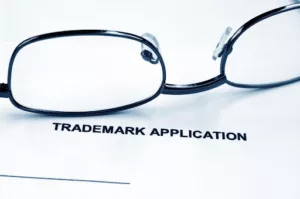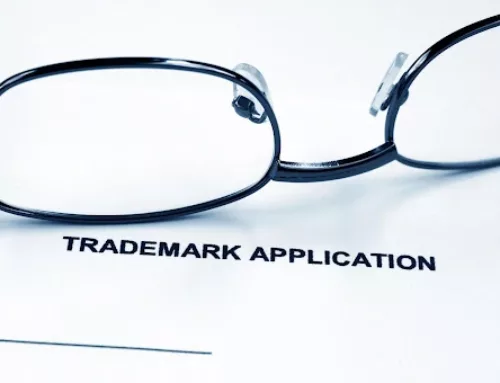Registering a trademark with the United States Patent and Trademark Office (USPTO) provides a mark owner with legal protections over the use and possession of their creation. Any type of identifying creation that establishes the source of various goods or services can benefit from a federally registered trademark. Symbols, phrases, and other designs, therefore, could qualify.
It is essential that business owners who want to register for a trademark fill out the application properly and supply all the information to get their trademark approved. A Specimen of Use is normally one of the necessary elements to register a trademark. Failure to include the right information means that a trademark application would not be successful. Businesses that would like assistance obtaining a trademark can contact a Washington, D.C. trademark attorney at War IP Law PLLC at (202) 800-3754.

What Is a Specimen of Use?
In order to register a trademark in the United States, a Specimen of Use will be required. In some situations, the USPTO wants to have a greater understanding of how a mark will be used with a real-world example. This means actual, tangible examples of the way that a mark identifies a product or service. Such examples would be the specimens.
For instance, a company wanting a trademark for a good could supply the USPTO with a picture of a container for the good that has a label with the mark or even a tag that bears the design, which would generally be acceptable specimens. By contrast, a specimen for a service mark may be a flyer or brochure for the company that has its mark printed on the material.
Filing a Specimen
A business owner can file either online via the Trademark Electronic Application System (TEAS) or with a physical paper application. When filing electronically, the image of your specimen must be attached in a .jpg format. The image should be very detailed and show exactly the context in which the mark is intended to be used.
A paper application will require a specimen to be flat and with a size limit of 8 ½ × 11 inches. Specimens related to sound, such as a catchy marketing jingle, could have a variety of specimens submitted. Audiotapes, compact discs, and videotapes are all acceptable.
Types of Trademark Applications and Submission of Specimen
The type of trademark you are filing for will dictate when it is necessary to submit your specimen. The two main applications for trademarks are:
Use in Commerce
This application is for a mark already being used by a business for commerce that extends across state lines. This would be all marks under the trademark office’s 1A basis. To illustrate when to file a use in commerce application, consider a company that has been using a specific word directly associated with its product that has been selling in several states. One specimen must be submitted for every class of goods or services listed in this trademark application.
Intent to Use
This application is for a mark that has not yet been used but that the business owner plans to use at some point in the future. This would be all marks under the trademark office’s 1B basis. To illustrate when to file an intent to use application, consider a business owner who has a product and foresees specific words they want to associate with it. The product has yet to be sold with these words, but the owner intends to do so soon. This application requires you to include a declaration that you plan on using the mark in the sale of your goods or services. In this case, you will need to file a specimen of use before the applied-for mark is registered. application.
For business owners who have both marks that they have already used in interstate commerce and those that they intend to use for commerce purposes in the future, it is possible to file a trademark application both under 1A and 1B bases. Because of the complexity that can come with filing a trademark application, a business may decide to seek assistance. The trademark attorneys at War IP Law PLLC are dedicated to helping businesses protect their rights and meet their intellectual property objectives.
What to Do If a Specimen Is Not Accepted
Receiving a refusal from the trademark office usually means a business owner did not submit an appropriate specimen or did not sufficiently demonstrate how a trademark would be used for their product or service. A trademark office action will be issued to an owner who had a specimen refusal, which will outline the exact reasons for the refusal.
The document that you submitted with your specimens will largely determine the ways that you might be able to overcome a specimen refusal. For refusals that came after a Statement of Use was submitted, there are three possible ways to remedy the problem:
- Establish and present ample evidence that shows that the specimens you submitted are suitable. The examining attorney will either agree or disagree with your arguments. If they do not agree, then you may appeal their decision, submit new specimens, or you may be able to file a request for an extension of time to develop and file another Statement of Use with different specimens.
- Submit new specimens that have both existed and were used before the Statement of Use filing’s expiration date.
- Before the expiration date comes from the initial filing of the Statement of Use, file for a Request for an Extension of Time. This gives a business owner additional time to file a new Statement of Use application with all new specimens supporting it.
Keep in mind that if you can’t file a specimen of use that shows the mark being used before the Statement of Use filing’s expiration date, your trademark application may be abandoned.
Need Help With a Trademark Application and Specimen Refusal?
Receiving a specimen refusal can be confusing and distressing. If you are unsure what to do and what is sufficient to include when you file a Statement of Use, an attorney may be able to give you more information and offer resources to help you be successful.
If you need assistance with your trademark application, consider contacting a Washington, D.C., trademark attorney at War IP Law PLLC at (202) 800-3754.




